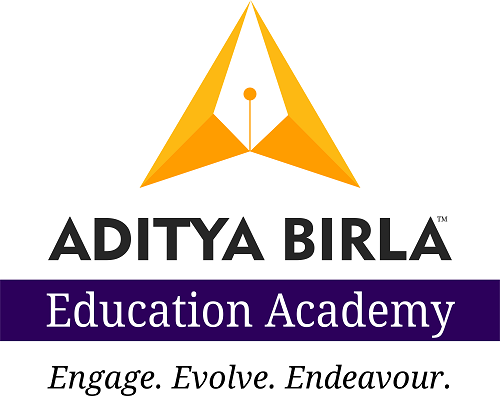Introduction:
Gifted education teachers play a vital role in identifying and supporting the unique learning needs of exceptionally gifted students. If you are passionate about working with intellectually talented learners and helping them reach their full potential, pursuing a career as a gifted education teacher may be a fulfilling choice.
In this blog post, we will explore the pathway to becoming a gifted education teacher and the essential steps to embark on this rewarding journey.
Understand the Field of Gifted Education:
To become a successful gifted education teacher, it is crucial to familiarize yourself with the field. Gain knowledge about the characteristics and needs of gifted students, the various educational approaches and strategies used in gifted education, and the legislative framework that supports gifted education programs.
Obtain a Relevant Degree:
Start by obtaining a bachelor's degree in education or a related field. Focus on coursework that explores topics such as child development, differentiated instruction, assessment methods, and educational psychology. Consider choosing electives or concentrations that specifically address gifted education.
Pursue Specialized Training and Certification:
To specialize in gifted education, seek additional training and certification programs. Many colleges and universities offer graduate-level programs and certifications focused on gifted education. These programs provide in-depth knowledge of curriculum development, instructional strategies, identification techniques, and program planning for gifted students.
Gain Classroom Experience:
Practical experience is invaluable for aspiring gifted education teachers. Seek opportunities to work with diverse student populations, including gifted learners, through internships, student teaching placements, or volunteering. Emphasize your interest in differentiating instruction and addressing the needs of high-ability students during these experiences.
Engage in Professional Development:
Continuously engage in professional development to stay abreast of current research, best practices, and emerging trends in gifted education. Attend conferences, workshops, and webinars focused on gifted education. Join professional organizations like the National Association for Gifted Children (NAGC) to connect with like-minded professionals and access valuable resources.
Network and Collaborate:
Build a strong network of educators, administrators, and specialists in gifted education. Collaborate with colleagues to exchange ideas, seek guidance, and share resources. Participate in professional learning communities, both in-person and online, to connect with experts in the field.
Seek Advanced Degrees and Credentials:
Consider pursuing an advanced degree, such as a master's or doctoral degree, in gifted education or a related field. Advanced degrees provide a deeper understanding of research and theory in gifted education, allowing you to contribute to the field through academic research, policy development, or leadership positions.
Stay Updated with Technology:
Embrace technology and explore how it can enhance instruction for gifted learners. Stay updated with educational technology tools and platforms that facilitate personalized learning, collaboration, and creativity. Incorporate digital resources and adaptive technologies into your teaching practices.
Advocate for Gifted Education:
Become an advocate for gifted education by raising awareness, promoting equitable access to services, and collaborating with stakeholders. Educate parents, administrators, and policymakers about the importance of gifted education and the unique needs of gifted learners.
Moreover, gifted education fosters the development of future leaders, innovators, and change-makers. By nurturing the exceptional talents and abilities of gifted students, the education system can produce individuals who can drive innovation, contribute to scientific advancements, and excel in various domains. Gifted students often possess unique problem-solving skills, creativity, and critical thinking abilities, which are essential for addressing complex societal challenges and driving progress.
Furthermore, gifted education promotes equity and inclusivity in education. It ensures that talented students from diverse backgrounds, including those from disadvantaged communities, have access to educational opportunities that align with their abilities and aspirations. By recognizing and supporting giftedness in all its forms, regardless of social or economic background, gifted education breaks down barriers and creates a more inclusive educational landscape.
In summary, gifted education is necessary in India to provide specialized support, foster talent development, promote equity, and harness the unique abilities of gifted students. By investing in gifted education, India can unlock the potential of its brightest minds, cultivate innovation and excellence, and create a more inclusive and prosperous society.
One example of why gifted education is needed in India is the case of Rahul, a young student with exceptional mathematical abilities. In a regular classroom, Rahul found the math curriculum too easy and quickly grew disengaged. Recognizing his potential, his parents sought out a gifted education program. In this specialized setting, Rahul was challenged with advanced math concepts, participated in math competitions, and collaborated with like-minded peers. As a result, Rahul's passion for mathematics flourished, and he became a prodigious problem solver. Gifted education provided Rahul with the opportunity to develop his talents fully and paved the way for his future success in mathematics and related fields.
Gifted education plays a vital role in nurturing exceptional minds by providing an environment that fosters intellectual growth and development. Through personalized instruction, advanced coursework, and enrichment activities, gifted education caters to the unique learning needs of gifted students. It challenges them with more complex and rigorous content, encouraging them to delve deeper into their areas of interest and passion. Gifted education also cultivates critical thinking skills, creativity, and problem-solving abilities, empowering exceptional minds to explore their potential fully. By providing specialized support and opportunities, gifted education nurtures exceptional minds, allowing them to thrive and make significant contributions in their chosen fields.
The National Education Policy (NEP) 2020 in India recognizes the importance of gifted education. It emphasizes the need for identifying and nurturing gifted students through special programs and initiatives. The NEP encourages schools to provide advanced educational opportunities, enrichment programs, and mentoring for gifted learners. By promoting gifted education, NEP 2020 aims to create an inclusive and equitable education system that supports the holistic development of gifted students, enabling them to reach their full potential and make significant contributions to society.
The Ministry of Education in India has taken proactive measures to promote gifted education, including the development of specialized programs, setting up of resource centres, and conducting training for teachers. These actions aim to identify and support gifted students, provide them with appropriate educational opportunities, and foster their talents and abilities.







